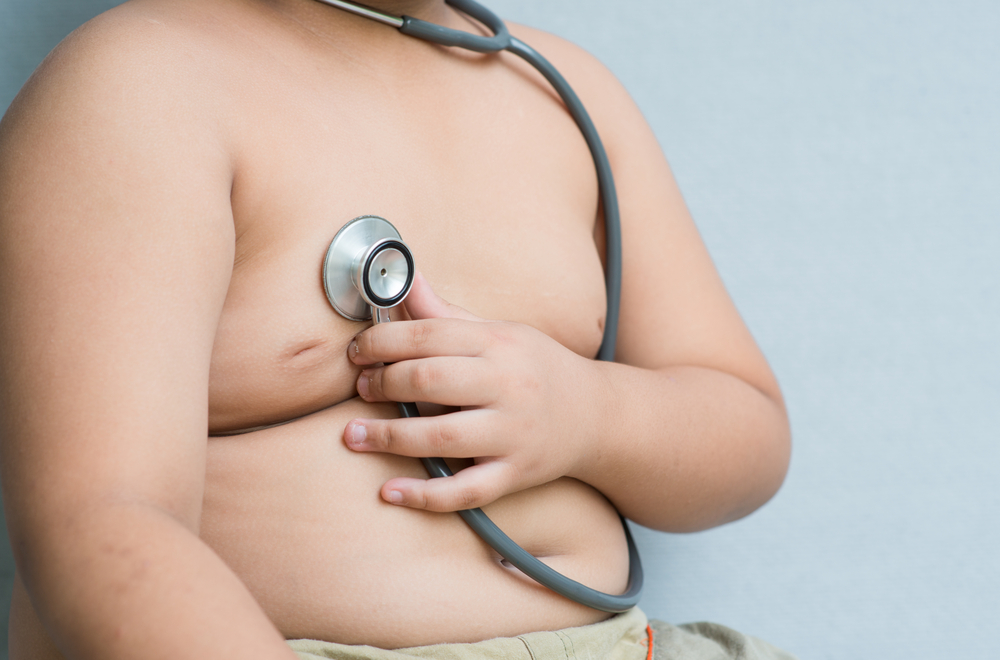A new study shows laparoscopic gastric banding surgery is an effective treatment for obese adolescents, successfully achieving weight loss but most importantly improving and in some cases even reversing metabolic syndrome. These effects significantly lowered obese adolescents’ risks of suffering from cardiovascular disease and diabetes.
The team of scientists from New York-Presbyterian Morgan Stanley Children’s Hospital and Columbia University Medical Center presented their findings at the Annual Endocrine Society Meeting, held recently in Washington, D.C.
In the new study, scientists led by Drs. Ilene Fennoy and Jeffrey Zitsman followed a group of 24 morbidly obese adolescents (aged between 14 and 17) who were submitted to laparoscopic gastric banding surgery, usually refereed to as the “Lap-Band,” wherein a surgeon places a band around the upper part of the stomach, making a smaller space to hold food. The surgeon creates a limitation to the amount of food a person needs to eat before feeling full. The adolescents who underwent “Lap-Band” surgery had either a body-mass index (BMI, a measure of body fat based on height and weight) greater than 40 or greater than 35 (in these cases if they already suffered from diabetes or other obesity-related condition).
The team observed that within six months after Lap-Band surgery, patients’ BMI and waist circumference significantly decreased. Additionally, markers for metabolic syndrome, such as blood levels of C-reactive protein, blood lipid and sugar levels also dropped. The team followed a group of patients for one year, and observed that participants’ BMI, waist circumference and C-reactive protein levels continuously improved.
These findings suggest that Lap-Band surgery, a procedure that is already approved by the FDA as a treatment for adults with extreme obesity, may also be a solution in obese adolescents. However, they highlight that additional larger, multicenter studies following patients for longer periods are necessary to validate these preliminary findings.
RELATED : ORBERA Intragastric Balloon Non-Surgical Weight Loss Device Receives FDA Approval
Dr. Fennoy, a pediatric endocrinologist at New York-Presbyterian Morgan Stanley Children’s Hospital, clinical professor of pediatrics at the Columbia University College of Physicians and Surgeons and study co-lead author commented, “An estimated 17 percent of all American adolescents are obese, and increasing numbers of them also have metabolic syndrome. Until recently, there have been few treatments capable of helping these young patients lose weight, much less improving their lifelong health prospects. The Lap-Band may well be a useful intervention for tackling teen obesity — which is why it is so important to investigate the procedure’s safety and efficacy in this growing population.”


